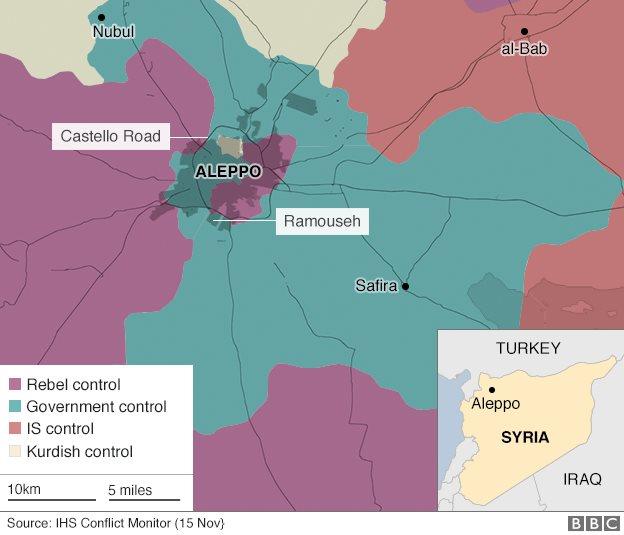Why is Russia engaged in Aleppo?
- Published
How the conflict in Aleppo has changed the fabric of the city
Russia has launched a major new assault on what it calls "terrorist targets" in Syria as a brief calm around Aleppo is shattered by devastating air strikes.
Moscow says its first warplanes to take off from its aircraft carrier now stationed off the Syrian coast did not target Aleppo itself.
But Russia's intensifying intervention could be a game changer in the protracted battle to control this strategic city and the momentum in this brutal war. The timing was expected: in a few months time a new President, with a new Syria policy, takes over in Washington.
It was Russia's sudden decision in September 2015 to intervene militarily in Syria which marked the start of a decisive shift in the course of a brutal war which has come to define Syria.
When we asked BBC News online readers what they wanted to know about Aleppo, the most popular question asked was, "Why is Russia helping the Assad regime?".
Moscow has long-standing links to Syria, with many Syrian military officers trained and equipped by their Russian friends.
But its decision to significantly boost its military, political, and moral support to Damascus did nothing less than rescue depleted Syrian forces from collapse on significant front lines under grinding pressure from an array of opposition forces.
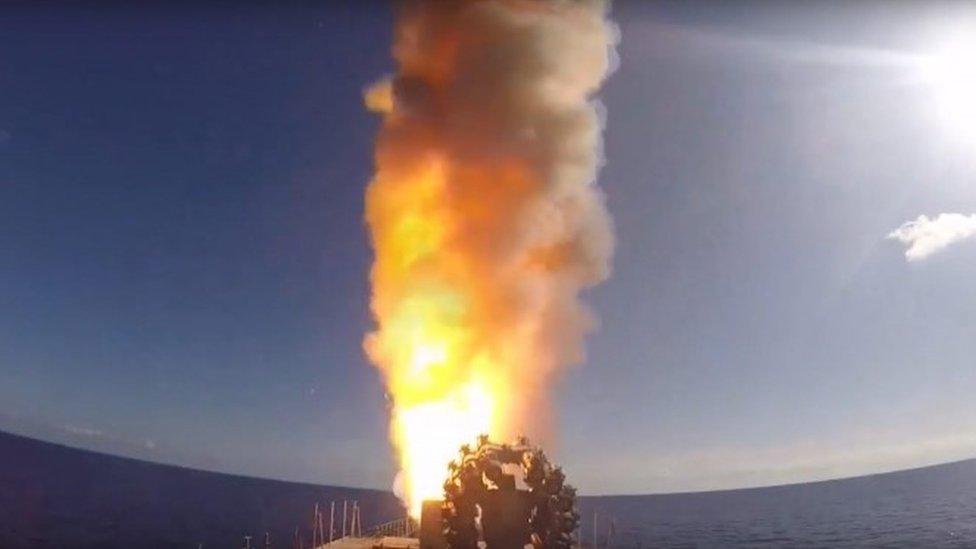
Russia's intervention in the Syrian conflict has transformed the country from a minor actor on the Syrian stage to the lead player
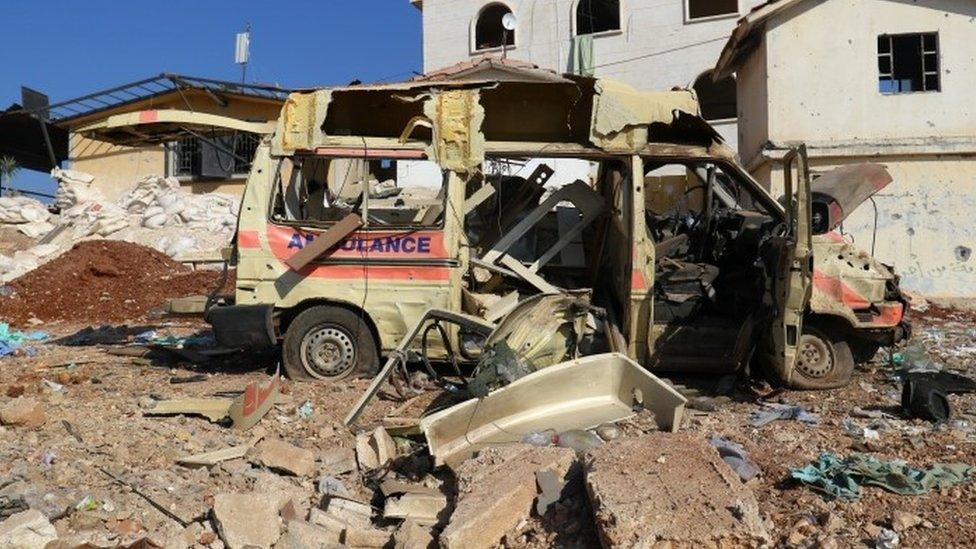
Accusations of possible war crimes against Russia are now a constant refrain
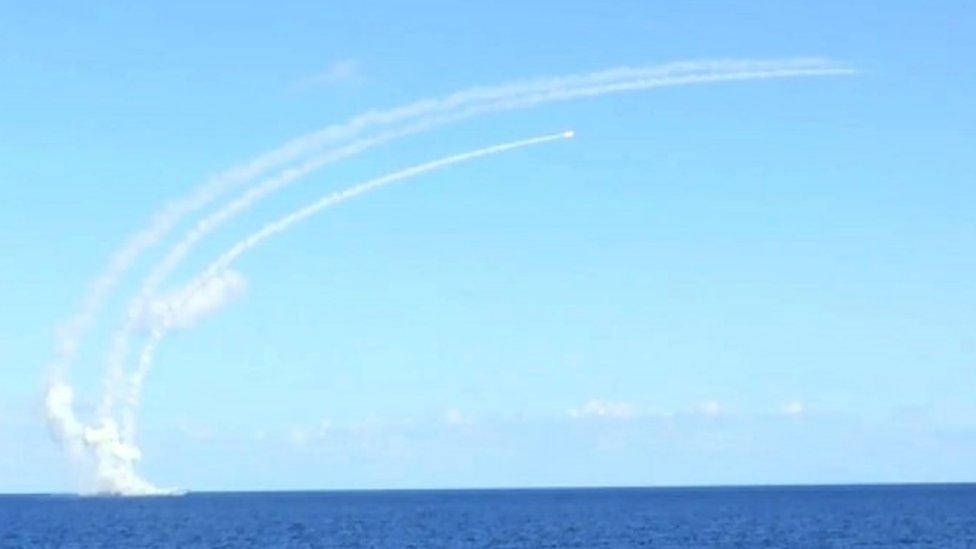
Over the past year more troops and considerable firepower, including advanced missile systems, have been moved by Russia onto the battlefield
On a visit to Damascus shortly after Russia entered the fray, Syrian soldiers and officials hailed their strong cultural affinity with the Russians, as well as their gratitude in their hour of need.
Air strikes resume on rebel-held Aleppo
Why are people still living in east Aleppo?
Life under siege in rebel-held Aleppo
Why Assad wants to take Aleppo
Aleppo: Key battleground in Syria's war
Russian officials often say their intervention "stopped the black flags" of so-called Islamic State (IS) from being raised in the Syrian capital. The threat posed by Islamic extremists is very real. But strengthening President Assad was a winning move for Moscow on many fronts.
It transformed Russia from a minor actor on the Syrian stage to the lead player which continues to resonate across the region.

Few civilians have taken up the offer to leave rebel-held Aleppo during the pause in air strikes
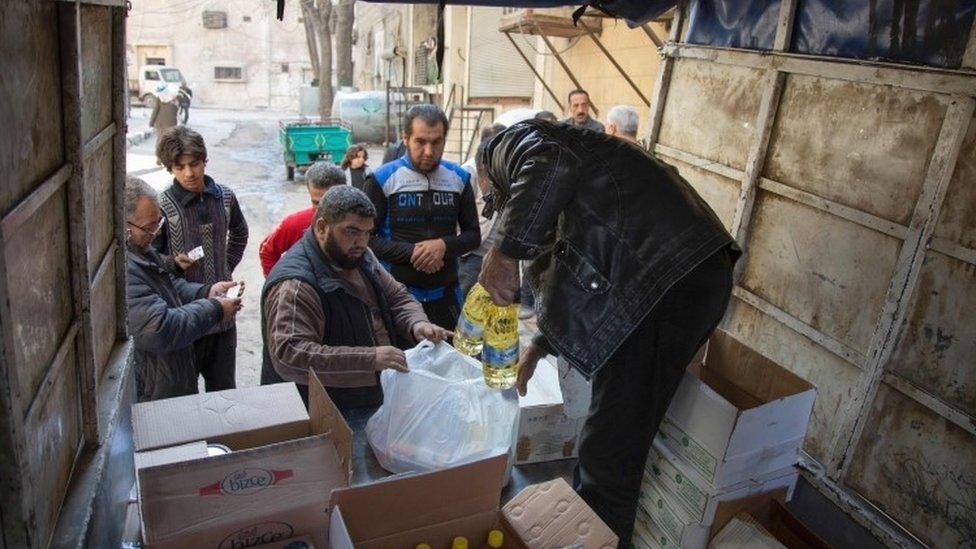
Many civilians in rebel-held areas of Aleppo rely on food handouts
American officials warned a year ago that Russia's gambit would suck it into another Afghanistan quagmire which ended in humiliating and costly defeat during the Cold War.
But even Arab allies of the Syrian opposition have at times privately expressed admiration for President Vladimir Putin's muscular backing for an ally, at so far limited cost.
Russia's assets in Syria centre on its port at Tartus, its only seaport along the Mediterranean, as well as its newly established Khmeimim air base in the north-west, its only airfield in the Middle East.

Why Lyse wrote this article:
We asked readers to send in their questions about what is happening in Aleppo.
Lyse chose four questions, and we asked you to select your favourite which was: "Why is Russia helping the Assad regime?"
Take a look at some of the other questions you've wanted us to answer

In October, Russia's parliament ratified an open-ended agreement to approve the base which revealed what had been a secret pact a year earlier to give Russia carte blanche to move personnel and cargo in and out of Syria, without inspection or interruption by Syrian authorities.
Over the past year more troops and considerable firepower, including advanced missile systems, have been moved onto the battlefield. Russian media have also reported the presence of Russian special forces as well as thousands of Russians working for military companies.
Russia and its Syrian ally cast their alliance as the winning team in the fight against IS. The capture of the ancient city of Palmyra last March - where Russia has now established a military post - is proof of that.
Projection of power
But Western militaries and diplomats repeatedly accuse Moscow of targeting opposition groups backed by the West, as well as attacking schools and hospitals which put civilians in harm's way.
Accusations of possible war crimes are now a constant refrain.

The Syrian leader has long been a shrewd operator when it comes to playing his foreign friends off each other

Hospitals in rebel-held areas have borne the brunt of Russian force
For Russia, this new projection of military power is about more than just Syria. It's one axis in a broader geopolitical battle to take what it sees as its rightful place at the world's top tables, on equal par with the power and prestige of the United States.
Endless talks with US Secretary of State John Kerry about finding a negotiated way out in Syria masked the quest for another prize - military to military co-operation, including intelligence sharing, which the Pentagon balks at.
For Russia, the redrawing of the map stretches to Ukraine and beyond in Moscow's new Cold War tensions with Nato nations.
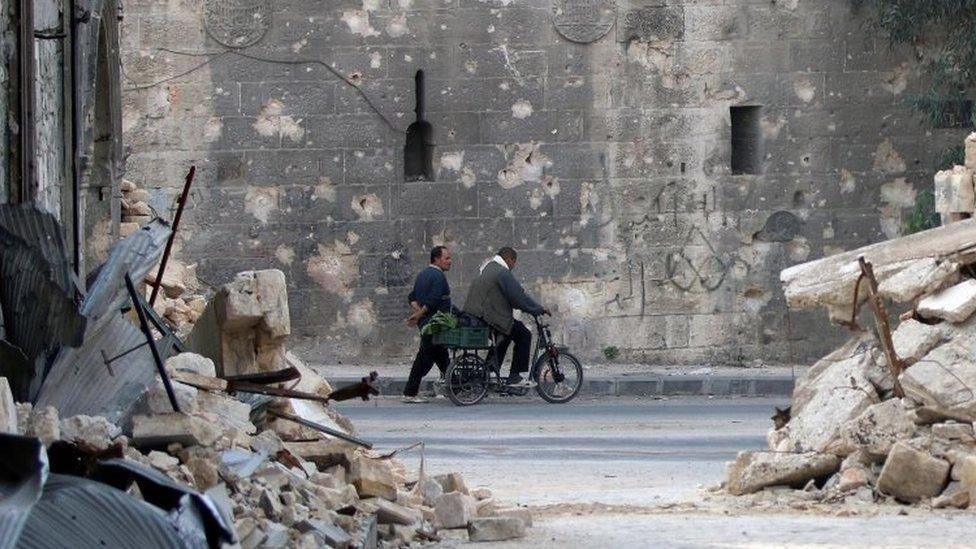
It was Russia's sudden decision in September 2015 to intervene militarily in Syria which marked the start of a decisive shift in the course of a brutal war which has come to define the country
Russia and Iran are on the same side in this war, along with Lebanese Hezbollah forces, and a dizzying array of fighters from far and wide including Iraqis and Afghans.
Iran's interests are different but no less essential: preserving its land corridor and access to Hezbollah in neighbouring Lebanon, protecting Shia shrines, and consolidating its growing geopolitical sway across the region at the expense of powerful Sunni rivals such as Saudi Arabia.
Both Iran and Russia have the back as well as the ear of President Assad, but not his complete acquiescence.
The Syrian leader has long been a shrewd operator when it comes to playing his foreign friends off each other.
When President Putin suddenly announced last March that he was pulling out "the main part" of Russian forces in Syria, talk in Damascus immediately turned to how Iran would fill any vacuum.
There has long been intense speculation over whether President Assad's most crucial allies would eventually try to nudge him aside for another less controversial strong man.
But they continue to insist the Syrian leader still commands popular support. For now, it suits them to keep him in charge.
And now US President-elect Donald Trump looks set to join this axis, at least in the fight against IS and the group once known as the Nusra Front which has been linked to al-Qaeda. President Assad has already called Mr Trump a "natural ally".
President Putin gambled last year when he entered Syria's great game. Western leaders often say he played a weak hand, and admit he's played it well - at least where it matters to him, and his allies.
